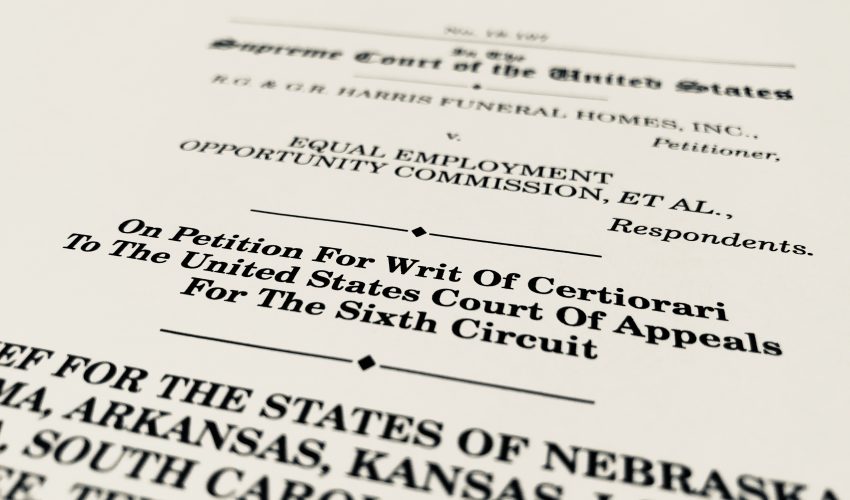Yesterday, Utah joined Nebraska and fourteen other states asking the Supreme Court to remember that policy changes should come from legislative bodies, not the courts. You can read the brief here.
Two quick facts:
First, SB 296 is not at risk. A U.S. Supreme Court ruling in Harris Funeral Homes will not affect Utah’s housing and employment protections for the LGBTQ community. Those Utah statutes are not (and will not be) the basis for any Court decision in Harris.
Second, the brief doesn’t address whether prohibiting employment discrimination on the basis of gender identity is good or bad policy. Instead, it makes the straightforward point that Congress—not the federal courts— should decide those types of policy questions.
So, why did we sign on?
The issue in Harris Funeral Homes is how to interpret a word in a federal statute known as Title VII, which prohibits employment discrimination on a number of protected characteristics. One of those prohibitions is discrimination on the basis of “sex.” Some courts—including the U.S. Court of Appeals for the Sixth Circuit in Harris Funeral Homes—have interpreted the word “sex” to mean not just the physiological distinctions between men and women, but also a person’s personal gender identity. The states’ brief argues—as other courts have found—that this interpretation contradicts the widespread public understanding when Congress adopted Title VII that discrimination based on “sex” meant only discrimination on physiological distinctions.
Now you know.
The role of American courts is not to redefine the law. When laws need to be amended to include a broader definition, that responsibility belongs to the appropriate legislative body, not the courts.

